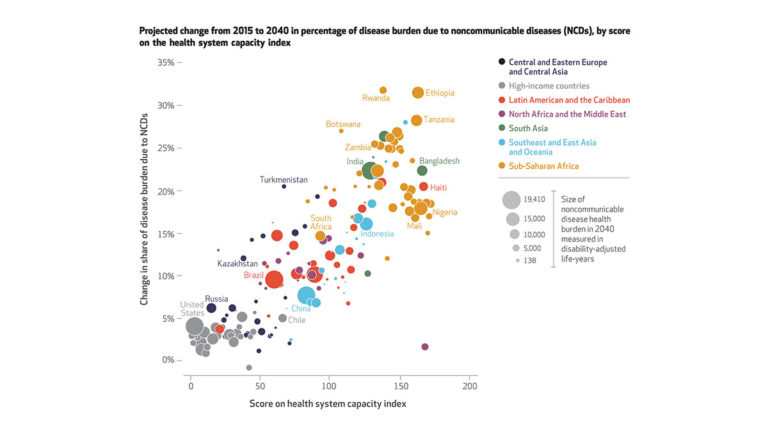Non-Communicable Disease in Low and Middle Income Countries
Non-communicable diseases, such as cardiovascular and respiratory disease, diabetes, and depression, cause 70% of deaths globally.

Read Time: 1 minutes
Published:
Non-communicable diseases (NCDs) kill 40 million people per year and are the leading (70%) cause of death globally. Non-communicable disease is a classification made up of chronic conditions like cardiovascular and respiratory disease, diabetes, and depression. Recent data in Health Affairs from Bollyky, et al., shows the disproportionate impact and growing burden of NCDs in low and middle income countries.
The authors also found that total health spending per capita is projected to significantly increase, mostly in sub-Saharan Africa and South/South-East Asia. Growth will be fastest, the authors argue, in poorer countries where under-funded health systems devote most of their resources to treating infectious disease. This means governments must understand and structure health systems to meet this epidemiological transition. Investment in preventing NCDs is essential and must coincide with investment in universal availability of primary health care.
Databyte via Thomas J. Bollyky, Tara Templin, Matthew Cohen, and Joseph L. Dieleman, Lower-Income Countries That Face The Most Rapid Shift In Noncommunicable Disease Burden Are Also The Least Prepared. Health Affairs.



